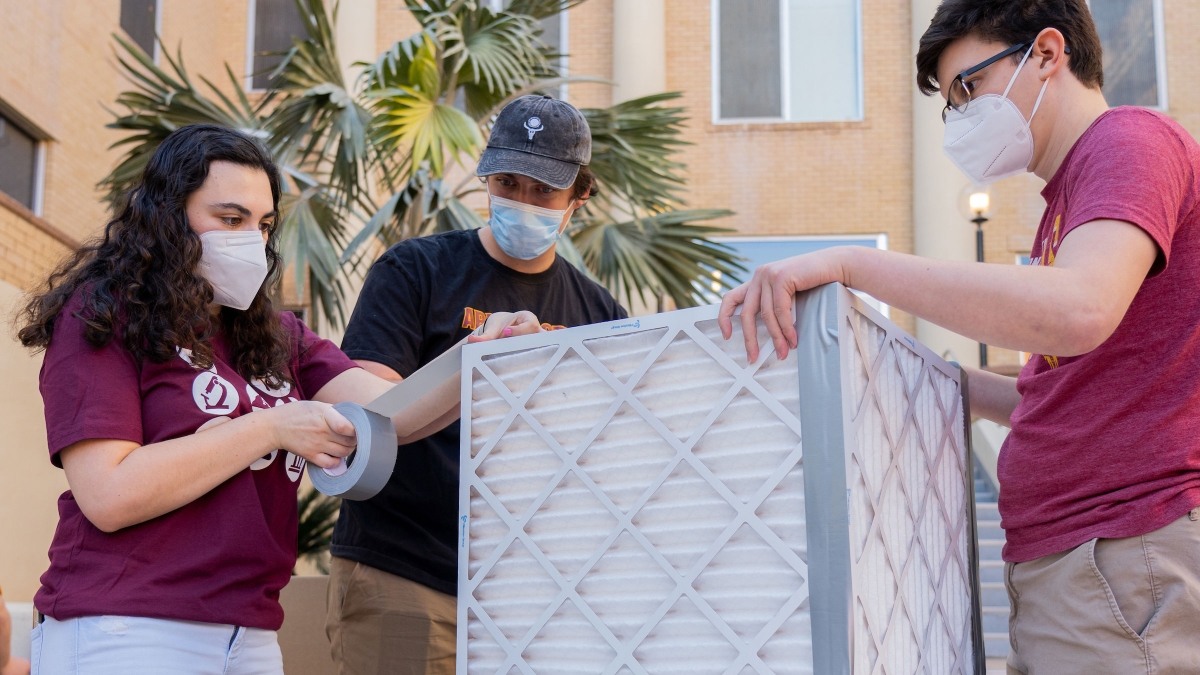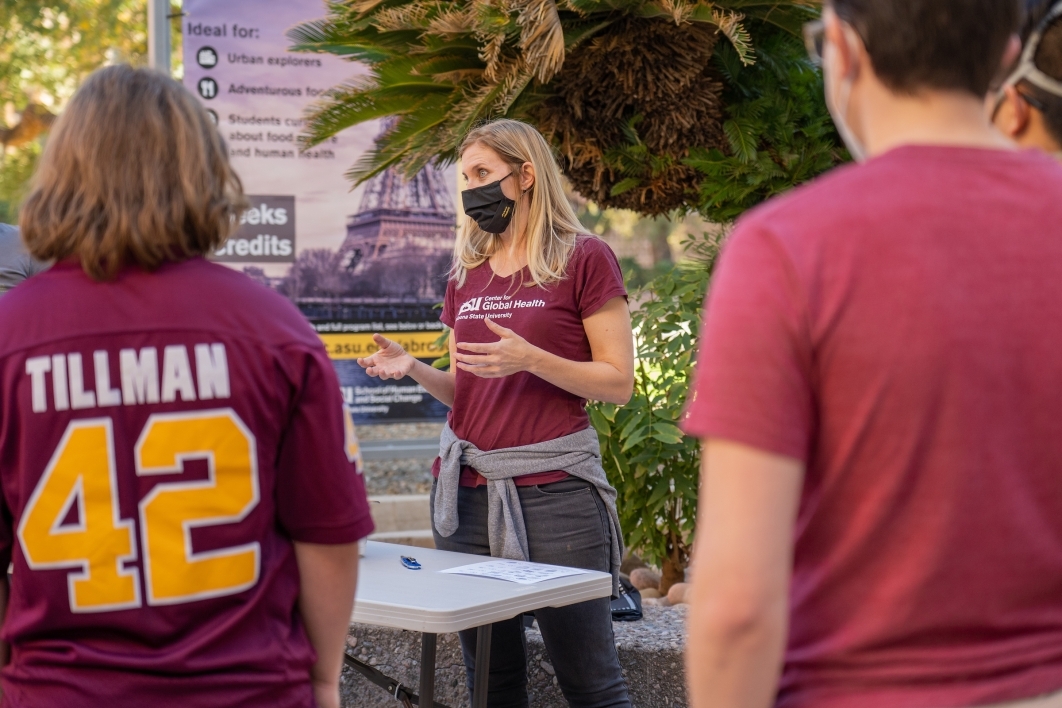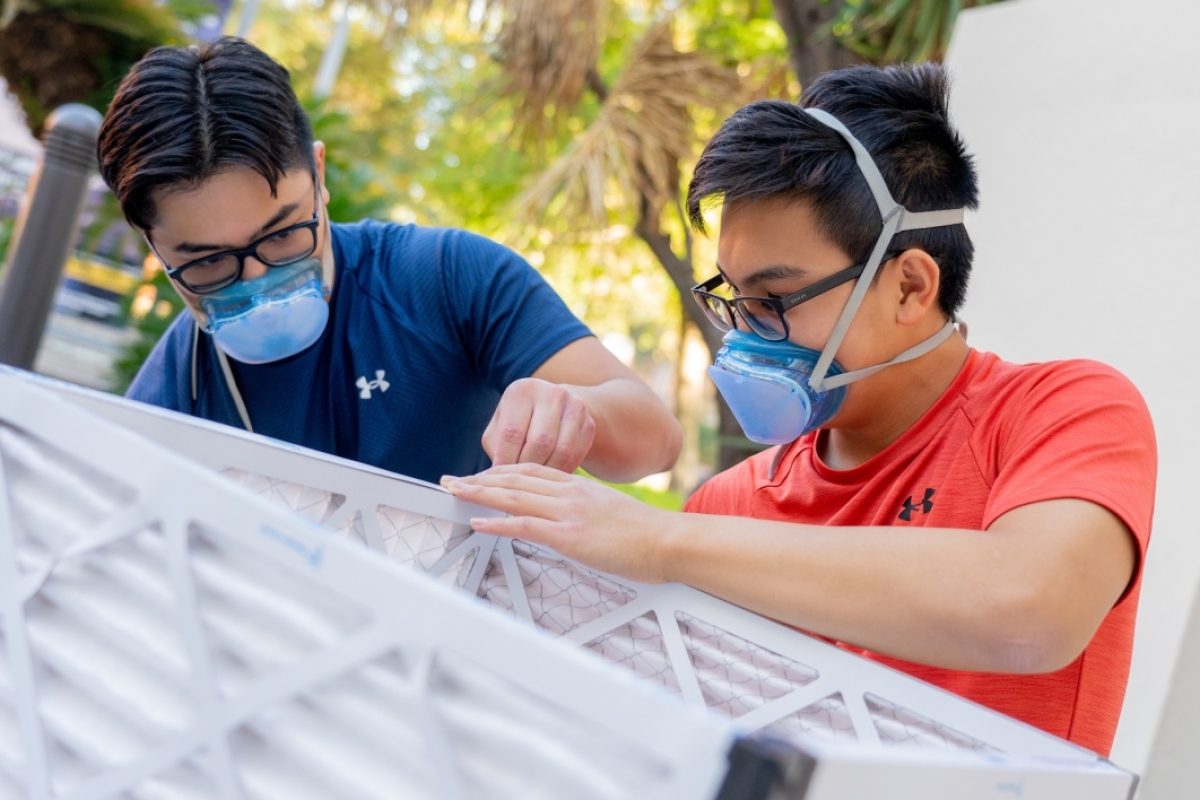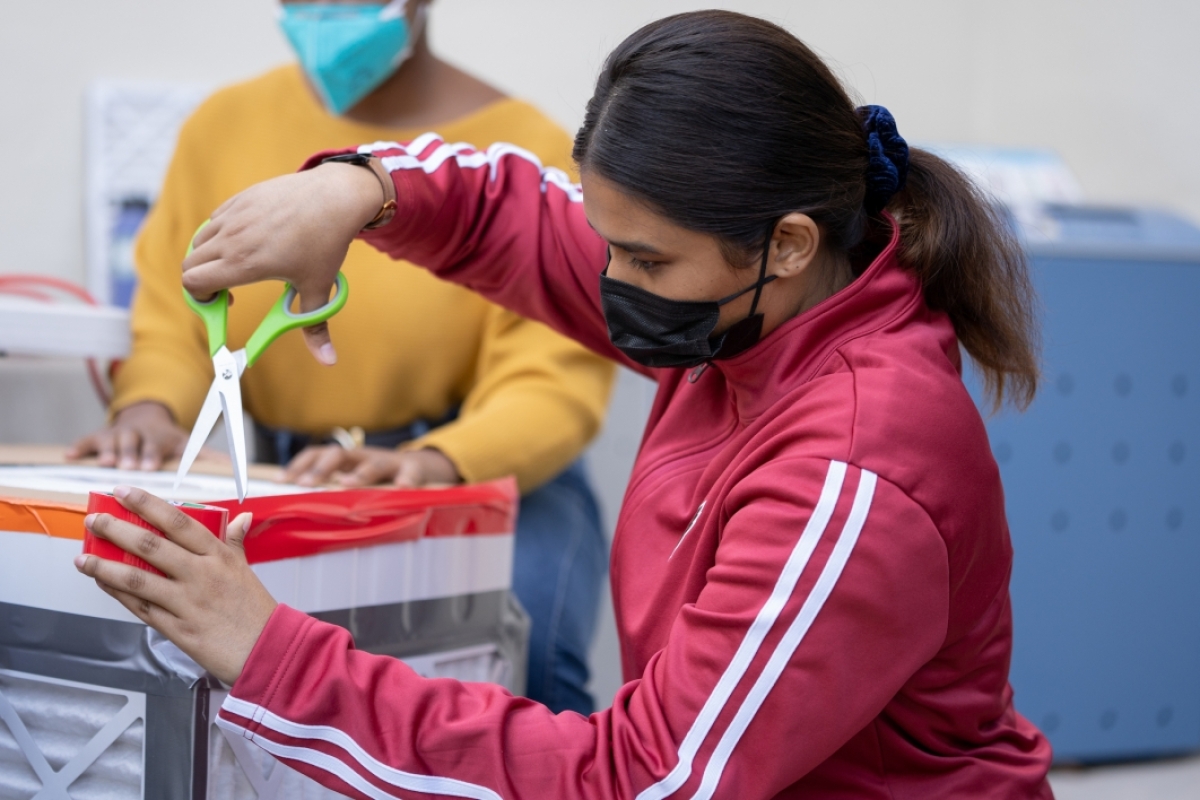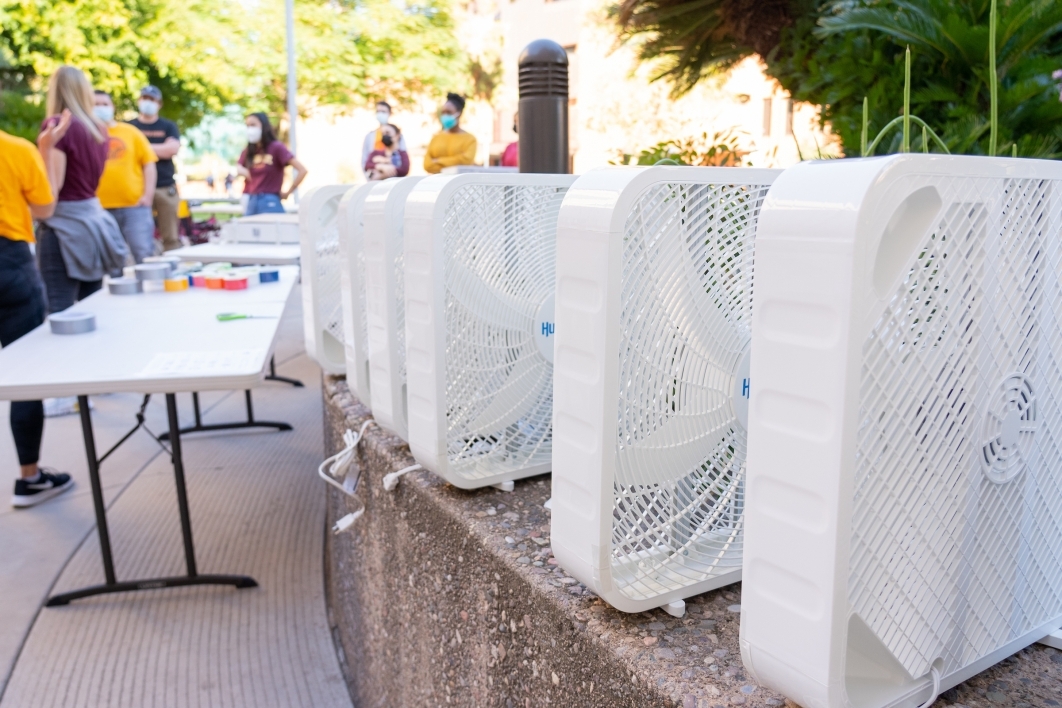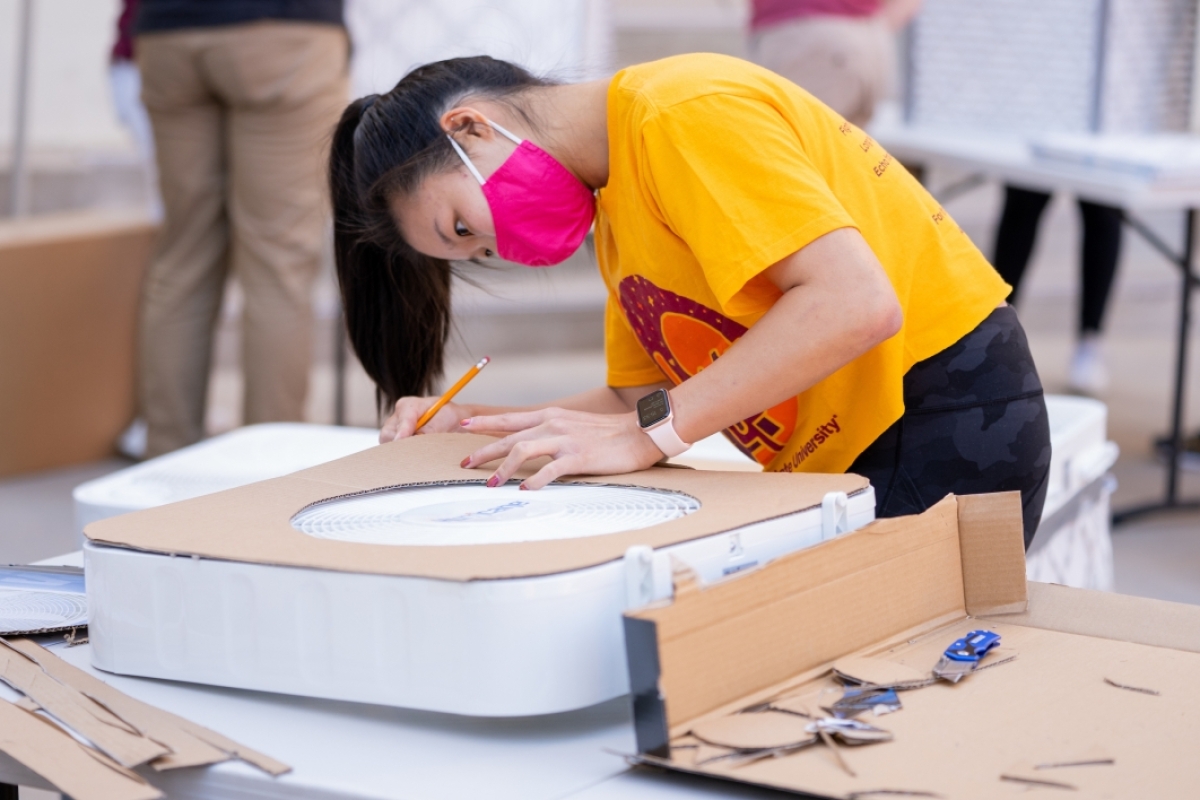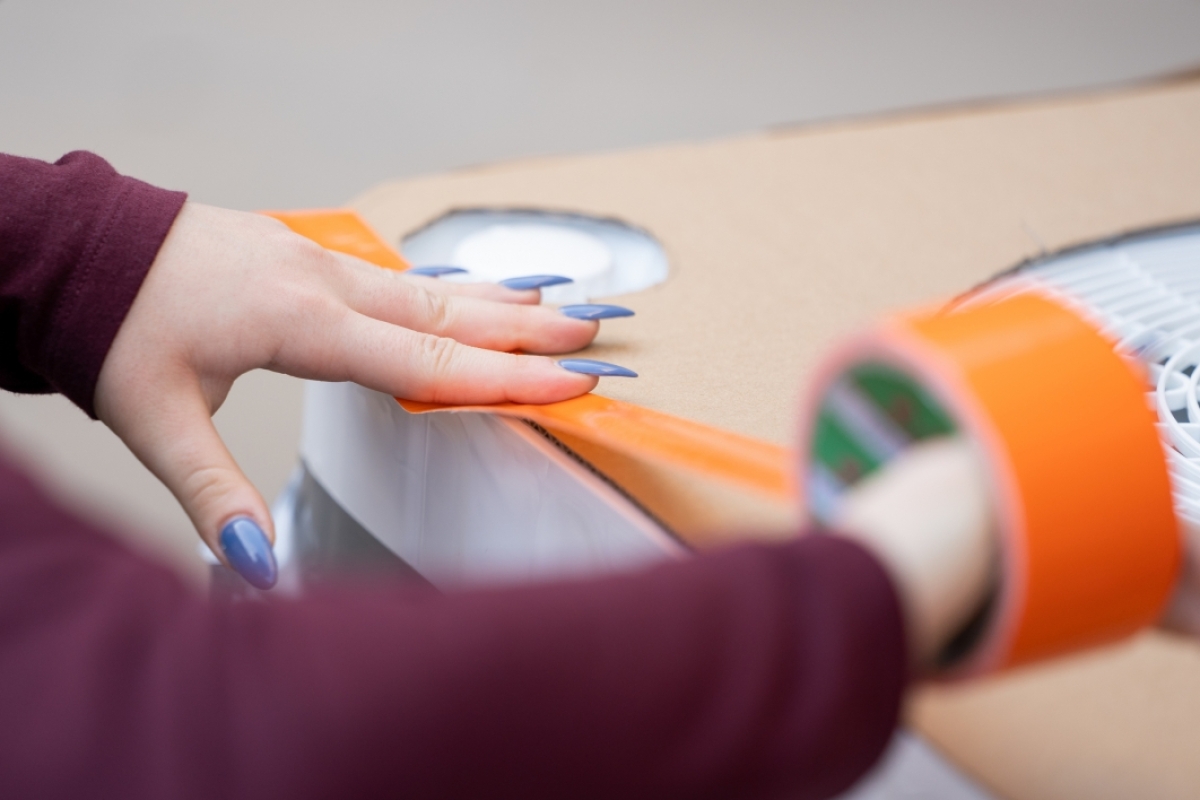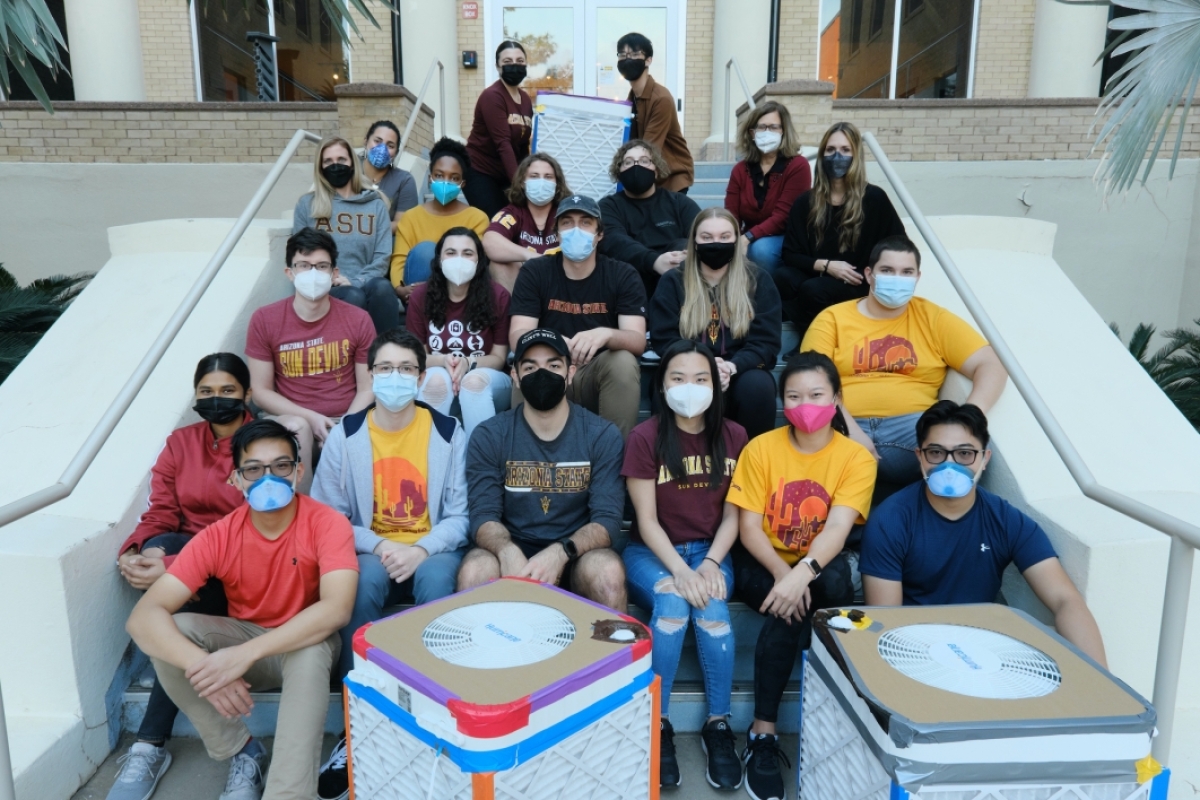Editor’s note: This story is featured in the 2022 year in review.
As part of Arizona State University's pandemic response teams, infectious disease epidemiologist Megan Jehn has been measuring the effectiveness of countermeasures such as face coverings.
Searching for ways to counter COVID-19 in school settings led her to another way to attack the problem: filtering indoor air in classrooms.
And to do that, she turned to a simple DIY box and the helping hands of ASU volunteers.
Inexpensive but effective, Corsi-Rosenthal boxes can be built from supplies available at most home improvement stores. The boxes are essentially a cube where four of the six sides are standard 20-inch household air filters. The top of the box is a 20-inch fan. Cardboard from the fan’s packaging is put to use as the bottom of the cube and as a “shroud” on top of the fan that increases the pressure to improve airflow.
“You don’t have to be a scientist to build a box like this; anyone can do it,” says Jehn, who leads both the university’s Student Outbreak Response Team and its Community Response Team and is an associate professor in the School of Human Evolution and Social Change. “It’s super easy. It only takes about 20 to 30 minutes and about $60 to $70 worth of supplies.”
Video by Steve Filmer/ASU News
Placed in a classroom, the filter box will draw air — including exhaled breath from people in the room, which could carry the coronavirus — through the filter. This treated air is then pushed out of the top of the filter box by the fan.
“It filters out the particles that are the size that carry viruses like SARS-CoV-2,” Jehn says, “and then it blows clean air out through the top of the box.”
The team has been working to gather donations from the community to assemble the boxes, which are then donated to K–12 classrooms throughout metro Phoenix.
Student volunteers are providing the brains and muscle to put the boxes together during “box-a-thons,” build days that take place outside the School of Human Evolution and Social Change on ASU’s Tempe campus. The box-making events are usually followed a day later by pickups by local school teachers. Jehn says if need be, a student volunteer can also deliver and set up one of the box filters in a classroom. At a recent build day, students made about 50 of the cubes.
Adding expertise to the effort is Marcia Levitus, a professor in the School of Molecular Sciences. Levitus is a trained physical chemist who connected with Jehn over Twitter. Both scientists are parents of school-age children.
Levitus has used carbon dioxide monitors to spot check the effectiveness of some of the filter boxes inside classrooms.
“If somebody's infected, this person will be exhaling CO2 together with tiny particles containing the virus. So the CO2 is a proxy, in a way, to sense what is the quality of the air. So if you are inside a classroom with a very high reading, you know that everybody's breathing everybody’s respiratory aerosols. So if someone is infected, that air will carry the virus and everybody will be breathing the virus.”
Donations are welcome via the Pitchfunder site and are being managed by the ASU Foundation. The next volunteer box-a-thon will be Friday, Jan. 28, from noon–5 p.m. on the front steps of the School of Human Evolution and Social Change, 900 S. Cady Mall on the Tempe campus. Those interested in taking part need to fill out the form at https://tinyurl.com/crboxvolunteer.
Find more information, including a form for teachers, principals and school administrators to request Corsi-Rosenthal boxes, at https://linktr.ee/DIYAirFilter.
Top photo: (From left) Fourth-year global health student Ellianna Lederman, first-year biochemistry student Max Hatfield and PhD environmental chemistry student Jason Miech use duct tape to assemble an air-filtration box outside the School of Human Evolution and Social Change in Tempe on Jan. 14. Photo by Samantha Chow/ASU News
More Health and medicine
New Indigenous health dashboard offers robust database for scholars
By Nicole Greason and Kimberly Linn A team at Arizona State University’s College of Health Solutions and American Indian Studies program has created a new tool to aid researchers…
College of Health Solutions program doing its part during Salute to Service
It wasn’t always easy for Marine veteran Chuck Hale when he first returned to civilian life. But he’ll never forget the help he received from a fellow former service member.“The first vet that helped…

What makes human culture unique?
Why is human culture — the shared body of knowledge passed down across generations — so much more powerful than animal cultures?“What’s special about our species?” is a question scientists have…
